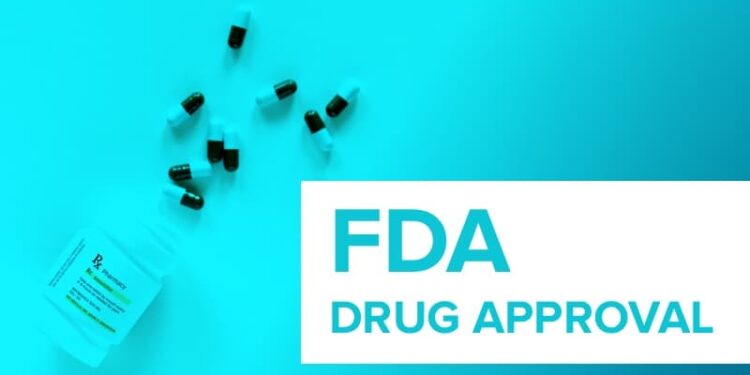[ad_1]
The US Food and Drug Administration (FDA) has approved a supplemental Biologics License Application for brentuximab vedotin (Adcetris; Seagen, Inc., a Pfizer subsidiary), in combination with lenalidomide and rituximab, for adults with large B-cell lymphoma that recurs or fails to respond to at least two prior lines of therapy.
Approval, based on response rates and survival outcomes demonstrated in the randomized, double-blind, placebo-controlled ECHELON-3 trial, is for patients with diffuse large B-cell lymphoma (DLBCL) not otherwise specified (NOS), DLBCL arising from indolent lymphoma, or high-grade B-cell lymphoma (HGBL) in relapsed or refractory patients who are not candidates for autologous hematopoietic stem cell transplantation or chimeric antigen receptor (CAR) T-cell therapy, according to the FDA approval notice.
Median overall survival (OS) was 13.8 vs 8.5 months (hazard ratio [HR], 0.63), respectively, in 230 patients randomly assigned 1:1 to receive lenalidomide and rituximab (R2) plus either brentuximab vedotin (BV) or placebo (Pbo) until disease progression or unacceptable toxicity. The OS benefit was consistent across levels of CD30 expression.
Median progression-free survival (PFS) was 4.2 vs 2.6 months (HR, 0,53) with BV+R2 and Pbo+R2, respectively; the objective response rate (ORR) was 64.3% and 41.5% in the BV+R2 and Pbo+R2 arms, respectively.
Adverse reactions occurring in at least 20% of patients in the BV+R2 arm were fatigue, diarrhea, peripheral neuropathy, rash, pneumonia, and COVID-19. Grade 3 or 4 laboratory abnormalities that occurred in more than 10% of patients and were more common in the BV arm included decreased neutrophils, lymphocytes, platelets, and hemoglobin. Peripheral neuropathy (PN) also developed or worsened in 27% of patients in the BV+R2 arm and was predominantly sensory. Grade 3 PN events occurred in 4% and 0% of patients in the BV and placebo arms, respectively, and PN led to BV dose reduction or discontinuation in 6% and 4.5% of patients in the arms, respectively.
“Patients with large B-cell lymphoma can face a challenging journey, with too many patients enduring multiple rounds of chemotherapy and even CAR-T therapy with limited success,” principal investigator Craig Portell, MD, of the University of Virginia, Charlottesville, stated in a Pfizer press release. “For patients who have previously faced setbacks with other therapies, ADCETRIS provides a new therapeutic option with outpatient administration and proven safety and efficacy.”
The recommended BV dose, according to the full prescribing information available at Drugs @FDA is 1.2 mg/kg, up to a maximum of 120 mg, given in combination with lenalidomide and rituximab every 3 weeks until disease progression or unacceptable toxicity.
Sharon Worcester, MA, is an award-winning medical journalist based in Birmingham, Alabama, writing for Medscape, MDedge, and other affiliate sites. She currently covers oncology, but she has also written on a variety of other medical specialties and healthcare topics. She can be reached at [email protected] or on X: @SW_MedReporter.
[ad_2]
Source link : https://www.medscape.com/viewarticle/fda-approves-brentuximab-vedotin-lenalidomide-and-rituximab-2025a10003pc?src=rss
Author :
Publish date : 2025-02-12 20:28:55
Copyright for syndicated content belongs to the linked Source.














